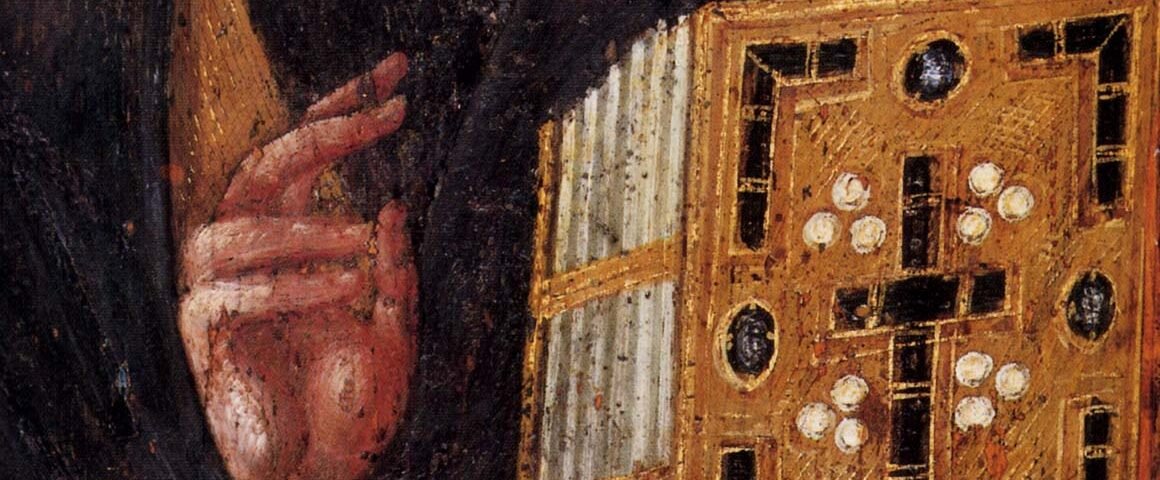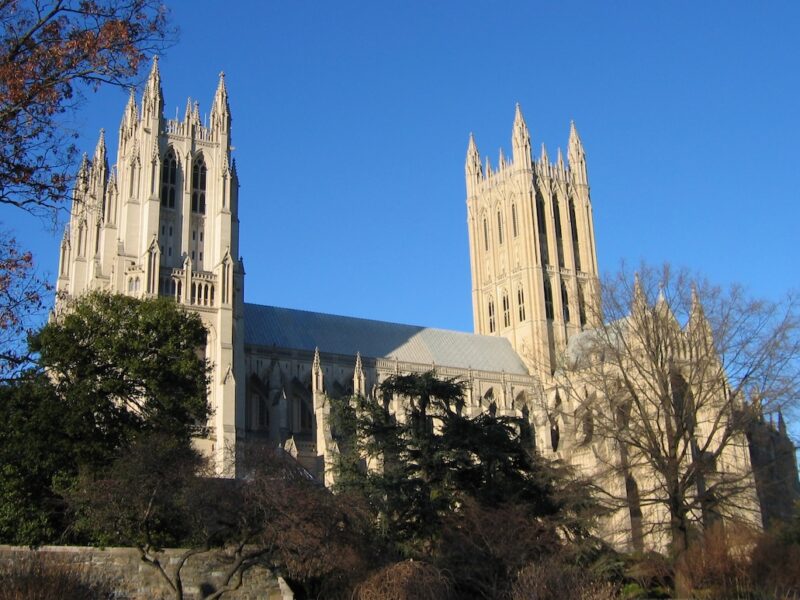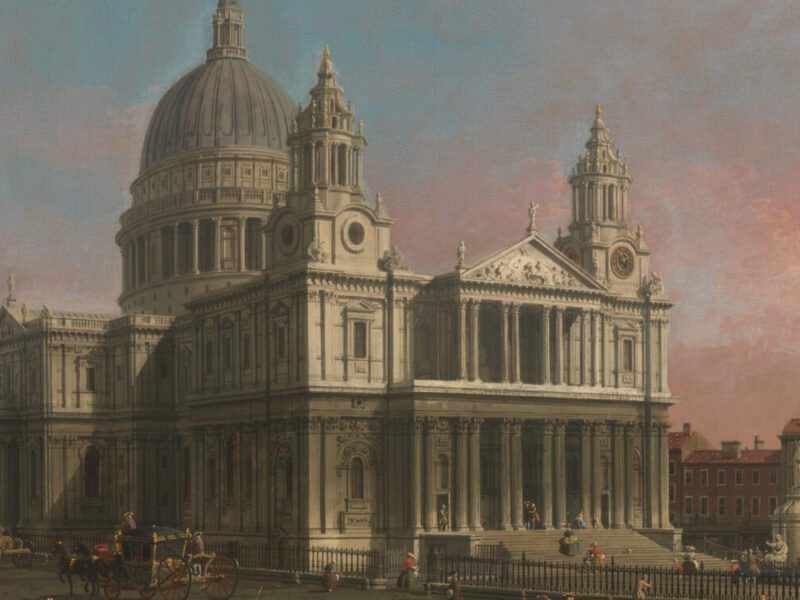As I have mentioned elsewhere, whenever I am asked about the difference between the Anglican Tradition and Roman Catholicism or Eastern Orthodoxy, I answer that it ultimately boils down to authority. Per the Anglican Formularies, found in the Book of Common Prayer, the Thirty-Nine Articles of Religion, the Ordinal, and the two Books of Homilies, the Anglican Tradition recognizes Scripture as our ultimate authority on faith and morals. All other authority, no matter how venerable, is secondary, derivative, and subject to correction by Scripture. There can be no dogmas, no “must-believe” issues, that are found outside of Scripture. As Article VI states, “Holy Scripture containeth all things necessary to salvation: so that whatsoever is not read therein, nor may be proved thereby, is not to be required of any man, that it should be believed as an article of the Faith, or thought requisite or necessary to salvation.” By contrast, Roman Catholicism and Eastern Orthodoxy respectively see the Magisterium and Sacred Tradition as parallel sources of ultimate authority.
In a recent interview with The Pillar, an online Roman Catholic publication, Msgr. Michael Nazir-Ali, a well-known former senior bishop in the Church of England, agrees that the primary difference between Anglicanism and Roman Catholicism is indeed authority. When asked why he decided to convert to Roman Catholicism, Nazir-Ali responds: “I’ve often said to people that my decision didn’t so much have to do with this issue or that, but how decisions are made, on what basis, and by what authority.” He then goes on to describe problems with the Lambeth Conference, which has no “legal authority” over the Provinces of the Anglican Communion, but historically has had “moral authority.” He says, “Repeatedly on questions of church order, on questions about marriage, the Lambeth Conference would make one decision and then the provinces would go and do something quite different.”
I certainly share Nazir-Ali’s frustration on how the leaders of the Anglican Communion have exercised authority. Indeed, he was fighting these problems much longer than I have been fighting, and at a much higher institutional level. Nevertheless, his reasoning misses a key aspect of how the Anglican Tradition views authority: Scripture is the highest authority. The Lambeth Conference does not have the authority to define or change our faith. Our bishops and archbishops do not have the authority to define or change our faith. The bishops and other leaders of the Church are merely stewards of what has been received from the Scriptures. As Article XX says, “Wherefore, although the Church is a witness and a keeper of Holy Writ, yet, as it ought not to decree any thing against the same, so besides the same ought it not to enforce anything to be believed for necessity of Salvation.”
In explaining some of the “theological obstacles” he had to becoming a Roman Catholic, Nazir-Ali notes that there is widespread misunderstanding of the authority of the pope. He rightly points out the error of the common notion that anything the pope says is infallible. This, of course, is not the Roman Catholic teaching. He recounts a game-changing conversation with a Vatican official who said to him, “The pope cannot change the faith of the Church.” For Nazir-Ali, this idea helped him make peace with what he perceived to be an authority problem in the Anglican tradition.
The problem, however, is that the pope has, in fact, changed the faith. One only has to look at the most recent dogmatic declarations by Rome. In 1870, at the First Vatican Council, the Roman Catholic Church dogmatically proclaimed that the Bishop of Rome has universal primacy and is infallible on faith and morals when speaking ex cathedra. In 1854, Pope Pius IX declared ex cathedra that the Immaculate Conception of Mary (i.e., the belief that Mary was without original sin from the moment she was concieved) is a dogma of the Church. In 1950 Pope Pius XII declared ex cathedra the belief in the Assumption of Mary to be a dogma of the Church. As dogmas, these are must-believe, de fide issues. To deny these beliefs is to risk one’s salvation per the Roman church. Demonstrably, none of these beliefs is to be found in the Bible. Demonstrably, none of these beliefs was universal in the undivided Church. All credible church historians agree that the papal claims to universal jurisdiction were a development over time, a development that was always rejected in the East. While speculation on Mary’s purity as the Theotokos was certainly widespread in the early church, Rome’s definition of that purity goes far beyond any pious belief or speculation. Similarly, the belief in Mary’s assumption developed quite early. Indeed, we see similar assumptions in the Old Testament with Elijah and Enoch. However, to move from pious belief to de fide dogma is to go far beyond Scripture or universal received tradition. In other words, these dogmas are, by definition, innovations in the Christian faith. These dogmas are, by definition, adding to the “faith once received.”
It would not be unreasonable to wonder how this is, in essence, any different from the apostate clergy of the Anglican communion declaring that the “Spirit is doing a new thing” when it comes to sexual morality and Holy Orders. The apostates are departing from the “faith once received” by subtraction; Rome has departed by addition. Both of these departures abuse and misuse the Church’s authority, as both betray the ultimate authority of the Holy Scriptures. Indeed, Rome’s departure from Scripture by innovation and addition was what made the Reformation necessary in the first place.
Our problem in the Anglican Communion is not one of where authority lies; our problem is one of discipline. Article XXVI requires the Church to discipline and depose wicked ministers. The Ordinal places the primary responsibility for that discipline squarely on the shoulders of the bishops. In the examination before the archbishop, a priest who is about to be consecrated as a bishop vows to believe, teach, preach, uphold, and study the Scriptures, praying to God for understanding, ability, and strength so to do. The archbishop then asks the bishop-to-be:
Are you ready, with all faithful diligence, to banish and drive away all erroneous and strange doctrine contrary to God’s word, and both privately and openly to call upon and encourage others to do the same?
Answer: I am ready, the Lord being my helper.
While all the faithful in the Anglican Communion bear some measure of responsibility to hold our leaders to account, the bishops bear the chief responsibility. Indeed, our bishops bear the chief responsibility for the sorry state of the Anglican Communion. Rather than being faithful shepherds under the Good Shepherd, many bishops, archbishops, and primates of the Anglican Communion have allowed wolves to enter the flock and devour the sheep. Many of our highest leaders have been hirelings rather than shepherds.
In John 10:13, our Lord says that one of the characteristics of the hireling is to flee when the wolves come. Shepherds do not abandon their flocks to be devoured by wolves. Shepherds fight the wolves, even at the risk of their lives. In North America we saw many faithful clergy (including bishops) suffer deposition, lose pensions, endure lawsuits, lose property, etc. to protect their flocks, even as many took their flocks out of the Episcopal Church. While he was certainly an outspoken voice for orthodoxy in an increasingly apostate Anglican Communion, Nazir-Ali “swimming the Tiber” does nothing to protect Anglican sheep. Granted, by the time he renounced his Orders to become a Roman Catholic, Nazir-Ali was retired. He no longer had a particular or specific flock to protect. And each man has a responsibility to act according to his conscience. Yet, for those of us who saw him speak and looked up to him for his courageous stances, it is frankly hard not to feel abandoned. There is one less person between the wolves and the sheep in the Anglican flock.
Perhaps Msgr. Nazir-Ali will protect Roman Catholic sheep now. But one wonders how Rome, with the Magisterium’s baked-in ability to go beyond the authority of Scripture, can be safer than the Anglican Communion in the long run. One only has to look to the wicked advocacy and apostate teachings of the likes of Fr. James Martin, or the recent German Synod to see that Rome’s failure to exercise the Church’s authority by disciplining error and fighting wolves is on a well-trodden path. When shepherds become hirelings all the papal authority in the world is insufficient. Indeed, its definitive misuse of authority via over-reach just makes things that much worse.





'A Question of Authority' has 1 comment
January 11, 2023 @ 11:02 am John Rowland
“While all the faithful in the Anglican Communion bear some measure of responsibility to hold our leaders to account” — what is the proper way of doing this?